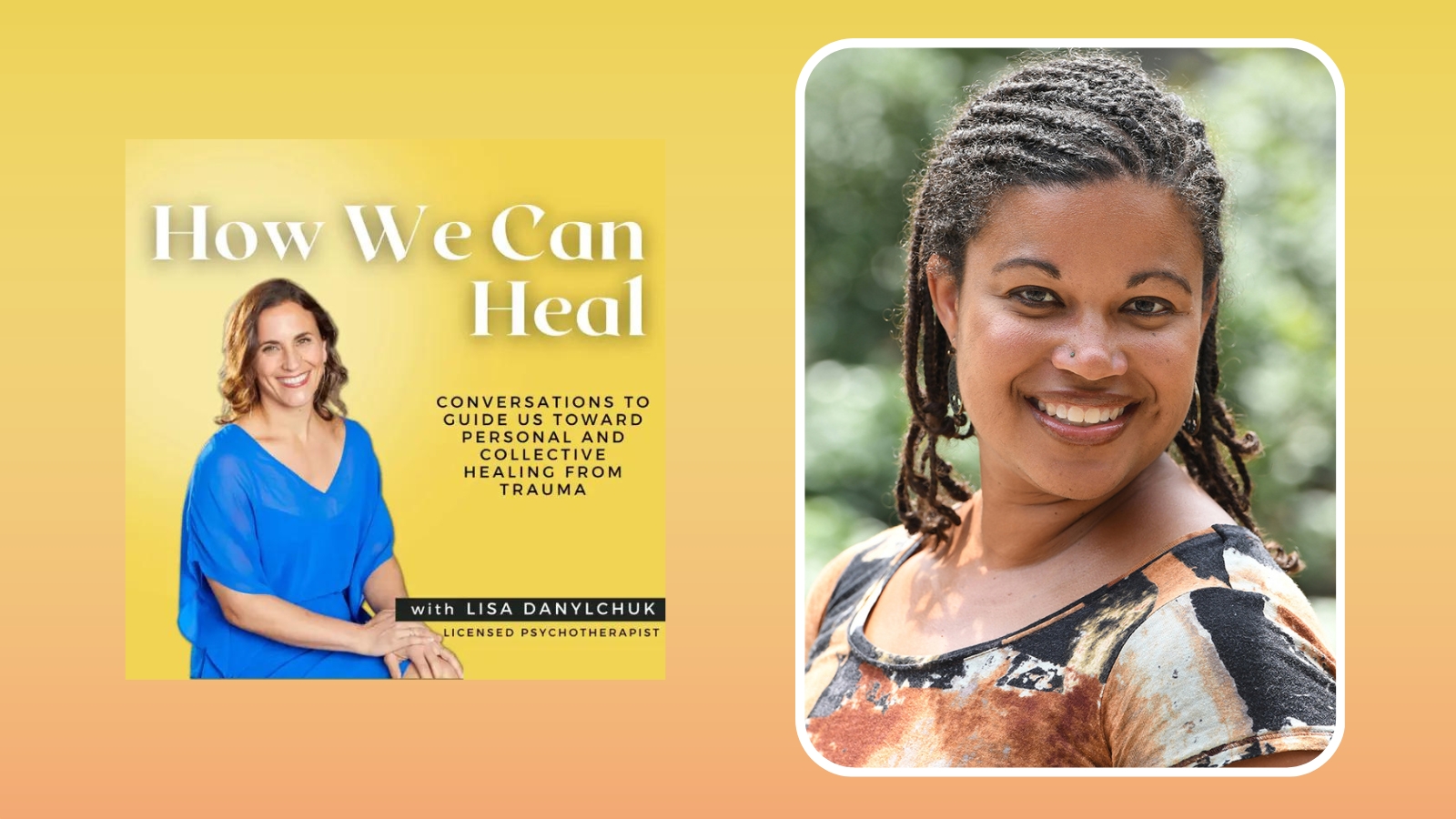How We Can Heal: Prof. Gómez Discusses Cultural Betrayal Trauma Theory on Mental Health Podcast

A new book by Prof. Jennifer M. Gómez from BU School of Social Work explores the unique harm that Black women and girls experience after sexual violence from Black men. Gómez recently spoke to Dr. Lisa Danylchuk on two episodes of her podcast, “How We Can Heal.” The first episode focuses on Cultural Betrayal Trauma Theory and how clinicians can help Black women who have suffered abuse.
Excerpt from “The Importance of Cultural Betrayal Trauma, with Dr. Jennifer M. Gómez” with Lisa Danylchuk:
 Some black people develop what I call ‘(intra)cultural trust,’ because ‘cultural mistrust’ is a common term in mental health literature, which is Black people’s mistrust of the larger white cultural systems. (Intra)cultural trust, then, is love, loyalty, connection, responsibility, and solidarity within a marginalized culture. And that is a very positive thing to have against structural, cultural, and systemic racism. The problem arises when you have violence happening within the Black community. Specifically, my book focuses on black male perpetrated sexual violence against black women and girls.
Some black people develop what I call ‘(intra)cultural trust,’ because ‘cultural mistrust’ is a common term in mental health literature, which is Black people’s mistrust of the larger white cultural systems. (Intra)cultural trust, then, is love, loyalty, connection, responsibility, and solidarity within a marginalized culture. And that is a very positive thing to have against structural, cultural, and systemic racism. The problem arises when you have violence happening within the Black community. Specifically, my book focuses on black male perpetrated sexual violence against black women and girls.
(Intra)cultural trust is, by and large, positive. Solidarity protects us against this racism business. But you can think of (intra)cultural pressure as a negative inversion of that trust. So someone says, ‘If you speak up about what happened, then you’re going to make us all look bad. And they’re already against us, right? The police, judges, social workers, psychologists, the educational system, we don’t need to draw attention to ourselves. So be quiet.’ Why isn’t sexual abuse a bigger issue? Research by myself and Lars Johnson shows that for college students who are young black women, one in three have been sexually abused in their lifetime. Those are insane numbers.”
Listen to the full episode
In the second episode, Prof. Gómez discussed survivor resources for hope, healing, and “dreamstorming” a better world.
Excerpt from “DreamStorming – Finding Hope & Joy in the face of Cultural Betrayal, with Dr. Jennifer M. Gómez” with Lisa Danylchuk:
 How can we heal? I have a free-writing example in my book of Nikia, who’s a Black woman, late 30s, sexually abused by her father, sexually abused throughout her life growing up in high school, her first job, all were black black males who she trusted. Not every sexually abusing person is going to be safe or amicable to have such a discussion, right? So Nikia writes as if she’s her father, and as if he were taking responsibility for this, like ‘I raped you because…’ and then she writes down different reasons like, ‘because I didn’t know it was hurting you, because I hated you, because I’m narcissistic and I just like couldn’t tell that you didn’t like it, because I have no idea why. And I should have removed myself from you since I could not stop myself over the course of years. I should have saved you from myself.’
How can we heal? I have a free-writing example in my book of Nikia, who’s a Black woman, late 30s, sexually abused by her father, sexually abused throughout her life growing up in high school, her first job, all were black black males who she trusted. Not every sexually abusing person is going to be safe or amicable to have such a discussion, right? So Nikia writes as if she’s her father, and as if he were taking responsibility for this, like ‘I raped you because…’ and then she writes down different reasons like, ‘because I didn’t know it was hurting you, because I hated you, because I’m narcissistic and I just like couldn’t tell that you didn’t like it, because I have no idea why. And I should have removed myself from you since I could not stop myself over the course of years. I should have saved you from myself.’
How healing that is! Because relational healing and community healing are so important, but we don’t all have these built-in communities or built-in families or built-in spaces that we’ve been talking about. So free-writing is a way to have this kind of relational healing and you do it by yourself when you don’t have those spaces or you don’t know you have those spaces. So that’s one option.”
Listen to the full episode